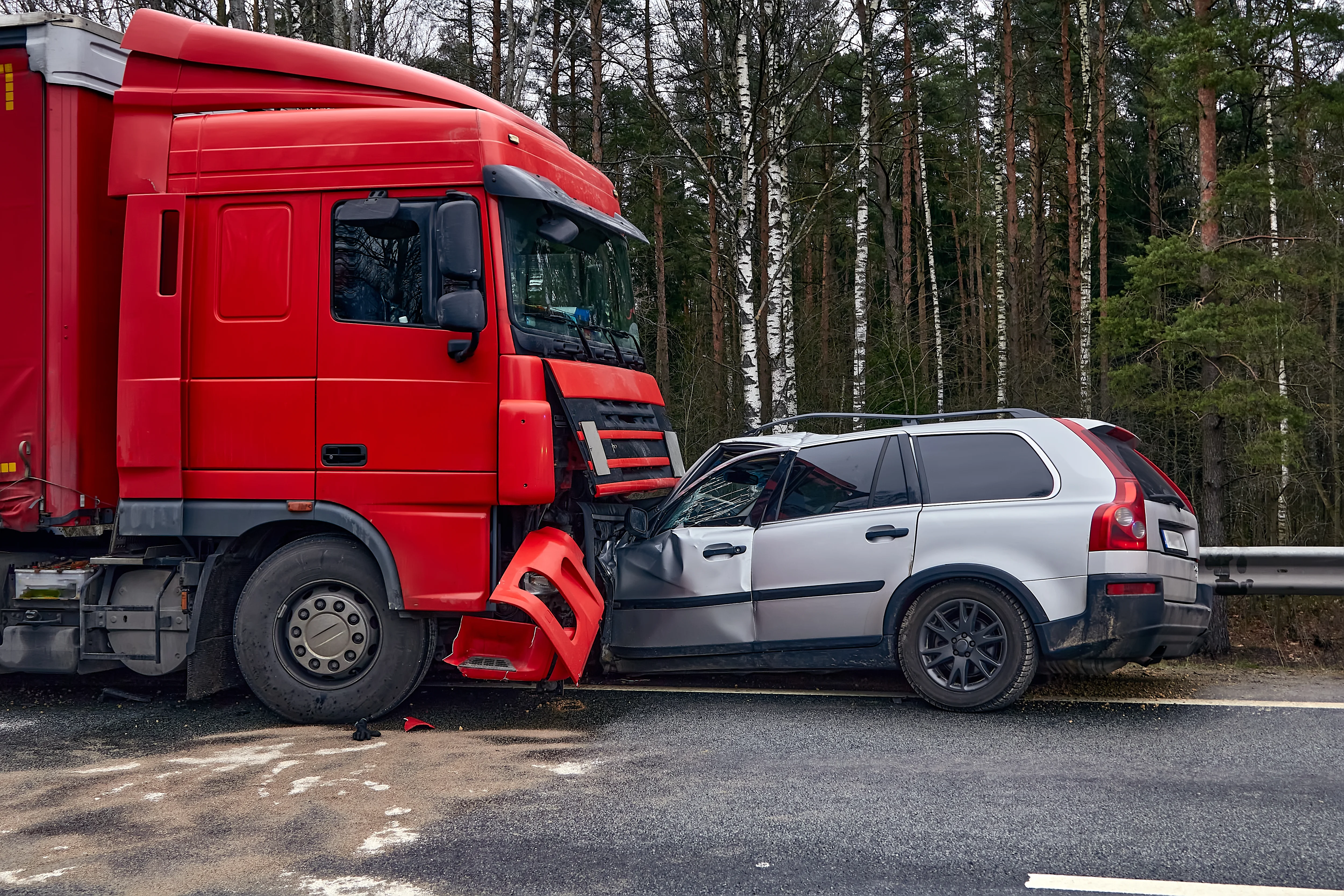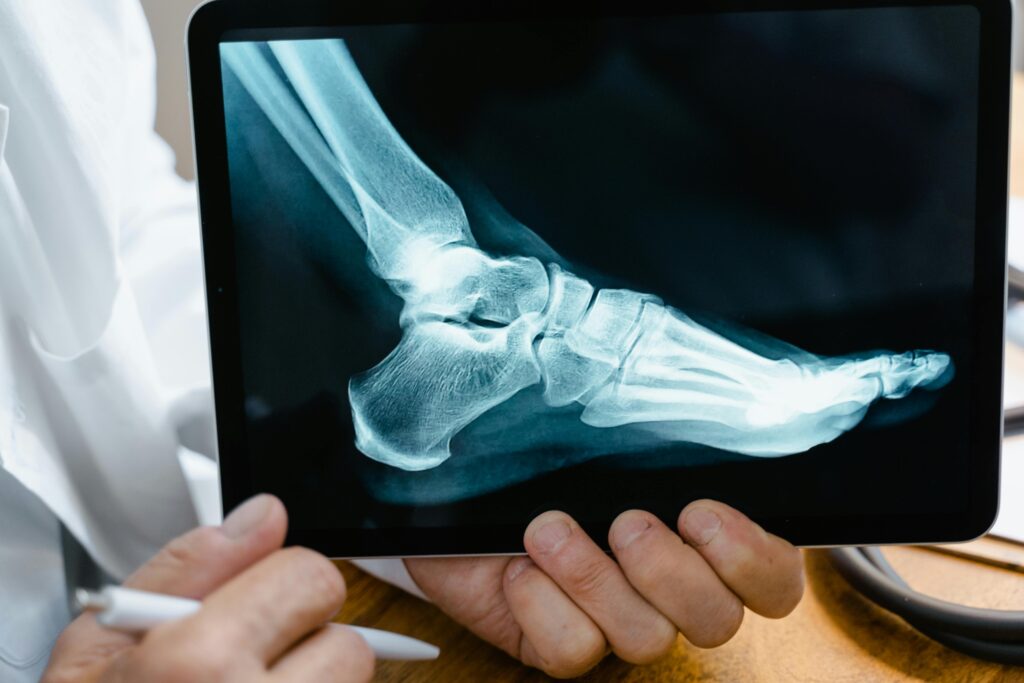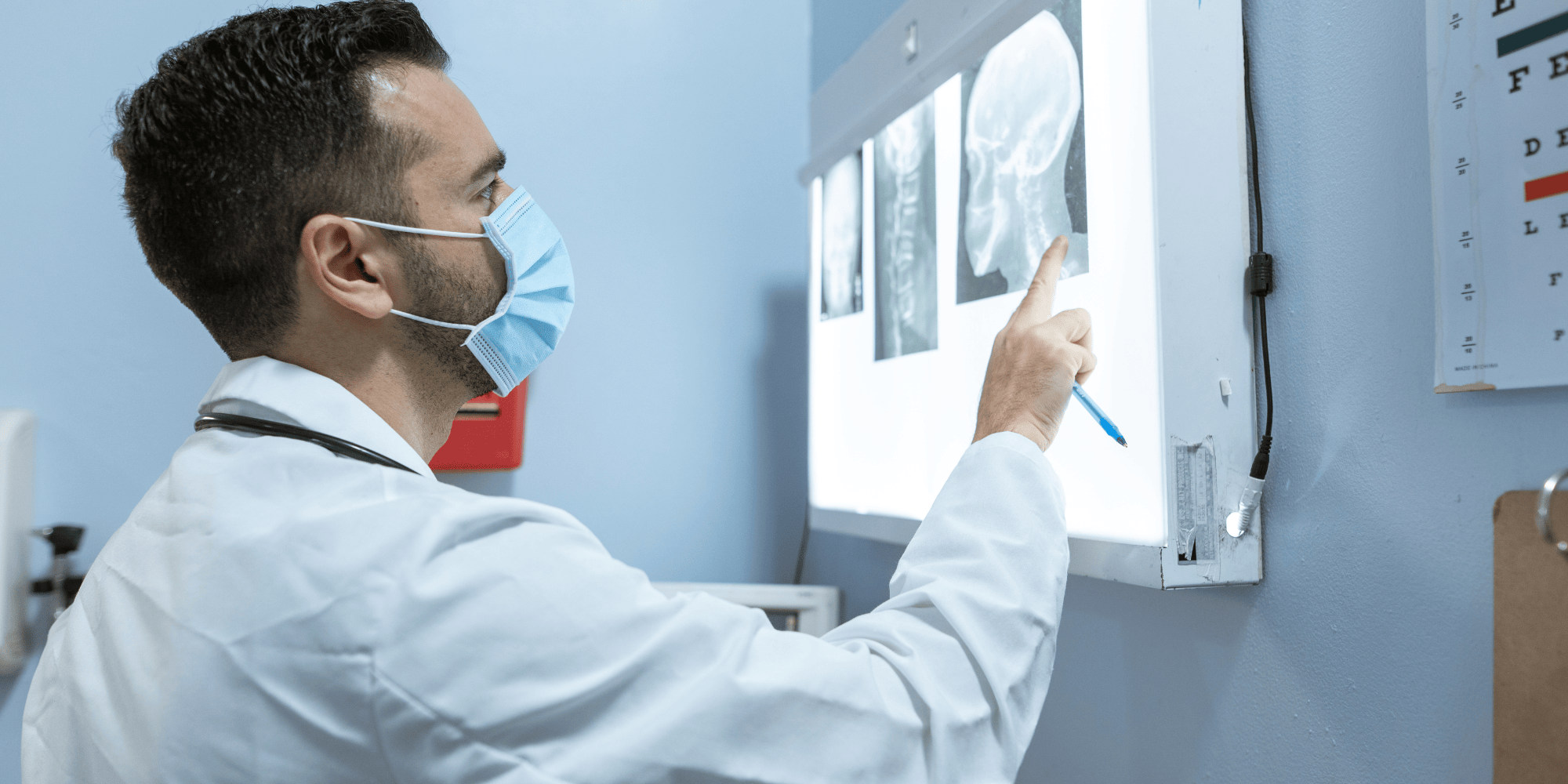Colorado UPS Truck Accident Attorneys Representing Injury Victims Statewide
UPS truck accidents across Colorado leave behind serious injuries, financial devastation, and emotional trauma. When a commercial delivery truck collides with a passenger vehicle, the consequences are often catastrophic due to the size, weight, and momentum of these vehicles. From Denver and Aurora to Colorado Springs and Fort Collins, the presence of United Parcel Service trucks on Colorado highways and local roads continues to grow, so do the risks.
Victims of UPS truck crashes deserve representation from a seasoned Colorado truck accident lawyer who understands the aggressive tactics used by corporate insurers. Jordan Levine is a dedicated advocate for Colorado families who have suffered serious injuries or wrongful death due to delivery truck negligence. Our legal team fights for maximum compensation covering medical expenses, rehabilitation costs, lost earnings, and long-term disability.
UPS and its fleet of brown delivery trucks are fixtures on Colorado roads. Yet behind the efficiency of the brand lies a troubling pattern of negligence. According to the Federal Motor Carrier Safety Administration, UPS trucks were involved in over 2,800 reportable crashes in a two-year span, many involving injury or fatality. These statistics highlight the urgent need for experienced Colorado UPS truck accident attorneys who can hold large corporations accountable in and out of court.
Why Contact Jordan Levine After a UPS Truck Accident in Colorado
UPS truck crashes in Colorado are not routine fender-benders. These incidents involve heavy commercial vehicles operating on tight delivery schedules with drivers working under high pressure. When collisions occur, the injuries are often severe and the legal obstacles are complex. Corporate insurers move quickly to shield UPS from liability and reduce payouts to victims.
UPS maintains a massive fleet across key Colorado corridors like I-25, US-36, and I-70. Whether an accident occurs in Aurora, Pueblo, or Castle Rock, the company initiates a fast-track legal response. Their goal is to reduce exposure, not compensate injured victims. Without legal intervention, crucial records like dispatch logs, GPS tracking, and safety reports can vanish. Jordan Levine steps in immediately to secure and preserve this evidence, allowing our team to identify the real cause of the crash and hold the right parties accountable.
Colorado law allows injury victims to seek compensation for lost income, hospital care, physical therapy, long-term disability, and emotional harm. But cases involving UPS trucks require a unique approach. Federal motor carrier regulations and corporate transportation practices both influence the outcome. Jordan Levine understands these details. We investigate not only the crash scene, but also company procedures, staffing, truck inspections, and driver fatigue policies. When we take a case, we commit to showing how systemic corporate practices contributed to your harm.
Uncovering the Role of Corporate Negligence in UPS Crashes
UPS enforces strict delivery metrics using tracking systems that monitor drivers down to the minute. These systems often encourage risky shortcuts, including speeding and skipping rest breaks. Drivers operate under intense logistical control. That pressure creates conditions where safety is compromised.
Jordan Levine builds legal arguments that address more than driver mistakes. We pursue records that reveal how dispatch targets and company quotas increase crash risk. Our legal team analyzes route planning documents, training manuals, and safety protocols to identify negligence embedded in the corporate delivery structure.
Building a Comprehensive Legal Case from Day One
Victims of UPS truck accidents often face resistance from insurers. Claims are denied, delayed, or lowballed. Jordan Levine works to build complete case files using police reports, black box data, medical diagnostics, and witness testimony.
Our legal team partners with medical experts and forensic consultants across Colorado to strengthen your case. We ensure no detail is overlooked. Early legal action helps secure essential evidence and improves your chance of a successful recovery.
Frequent Causes of UPS Truck Accidents in Colorado
Colorado’s vast highway system and rapidly growing metro areas create a unique collision risk for UPS drivers operating under tight logistics schedules. From urban congestion in downtown Denver to the steep mountain corridors near Vail, the challenges for delivery truck drivers are significant. UPS vehicles frequently travel narrow neighborhood roads, construction zones, and high-speed interstates while under strict delivery mandates monitored by corporate telematics. These factors combine to elevate the risk of accidents caused by both human error and systemic pressure. Unlike standard auto crashes, collisions involving UPS trucks often stem from a combination of poor training, fatigue, overloading, or technological distractions.
In the Front Range region, including cities like Colorado Springs, Boulder, and Fort Collins, UPS drivers often face erratic weather conditions and high traffic volumes, especially during peak delivery seasons. Snow, black ice, and sudden temperature shifts can make braking and turning hazardous for heavy trucks. On rural routes through communities like Delta or Montrose, speeding and inattention become dangerous due to wildlife crossings, sharp curves, and limited visibility. At Jordan Levine, we investigate all contributing factors. Our legal team examines corporate delivery quotas, driver logs, route data, and maintenance records to identify how avoidable mistakes and unsafe company policies cause injury to innocent drivers and pedestrians across Colorado.
UPS accidents are rarely random. They result from structured pressures that leave drivers little room for safety-based decisions. Understanding these root causes is key to identifying liability. Below are some of the most common and preventable reasons UPS truck crashes happen in Colorado.
Distracted Driving in High-Density Urban Areas
UPS delivery drivers are often required to juggle multiple responsibilities while driving. These include operating GPS systems, responding to dispatch messages, scanning packages, and adjusting delivery routes in real time. In cities like Denver, where foot traffic, cyclists, and rideshare vehicles compete for road space, this creates a highly dangerous mix. A brief lapse in attention can cause a UPS truck to rear-end a vehicle, fail to yield to a pedestrian, or swerve into a bike lane.
Even when hands-free technology is used, cognitive overload reduces a driver’s ability to react to sudden changes in traffic. Jordan Levine uses subpoena power to access communication logs, scanner data, and internal routing software records to prove distracted driving. Our team also reviews dashcam footage and witness statements to establish clear fault when distractions contribute to a crash.
Driver Fatigue Caused by Aggressive Delivery Quotas
UPS imposes strict daily delivery metrics, especially during holidays and promotional shipping seasons. These metrics are enforced by GPS tracking systems and corporate performance evaluations. As a result, many UPS drivers in Colorado work shifts that stretch well beyond eight hours without proper rest or breaks. Fatigue reduces a driver’s decision-making ability, slows reaction time, and increases the risk of falling asleep behind the wheel.
The mountainous terrain and high-altitude driving conditions in Colorado amplify the dangers of drowsy driving. Long descents on I-70 or repetitive turns on rural roads in Jefferson or Eagle counties demand focus and energy. Fatigued drivers operating heavy trucks under those conditions pose a grave danger to others. Our firm evaluates electronic logbooks, mileage logs, and HR performance reports to demonstrate how corporate scheduling pressure led directly to driver exhaustion and increased crash risk.
Poor Vehicle Maintenance and Mechanical Failures
UPS manages one of the largest private delivery fleets in the United States, including hundreds of vehicles operating daily throughout Colorado. When trucks are pushed through long shifts without routine inspections or preventive maintenance, mechanical breakdowns are inevitable. Common failures include worn-out brakes, bald tires, steering malfunctions, and defective lighting systems. These mechanical issues are especially dangerous on Colorado’s winding mountain passes and steep downhill grades, where brake function and steering precision are essential for safe operation.
In cities like Aurora or Lakewood, maintenance failures can result in rear-end collisions, jackknife accidents, or blocked intersections. Jordan Levine investigates each vehicle’s repair logs, fleet service records, and inspection history to determine whether UPS cut corners on upkeep. We work with certified mechanics and accident reconstruction professionals to establish how these failures contributed to the crash. Proving poor maintenance is often a key factor in shifting liability away from the driver and onto the corporation responsible for fleet management.
Unsafe Driving Behavior Under Delivery Pressure
When UPS drivers operate under time-based performance incentives, safety is often sacrificed in favor of speed. This can lead to a range of reckless behaviors such as speeding through neighborhoods, rolling through stop signs, unsafe lane changes, and making abrupt U-turns in tight spaces. These choices are not just the fault of an individual driver but are often symptoms of broader corporate policies that reward aggressive delivery timelines and penalize delays.
In fast-growing suburbs such as Thornton, Centennial, and Parker, these behaviors pose a serious risk to children, cyclists, and local traffic. UPS trucks may enter narrow roads or perform sudden maneuvers to shave minutes off delivery times. Jordan Levine exposes these risks by reviewing delivery schedules, telematics data, and surveillance footage to build cases that show how unsafe corporate expectations led to hazardous conduct behind the wheel.
Dangerous Areas in Colorado with Frequent Commercial Accidents
Colorado’s transportation network includes urban expressways, mountainous interstates, and rural highways that pose unique risks to commercial drivers. While scenic, many of these roadways create hazardous conditions for large delivery vehicles like UPS trucks. From sharp elevation changes and unpredictable weather to congested city traffic and high-volume freight routes, specific regions in Colorado are statistically more prone to serious accidents. These areas are particularly dangerous when corporate delivery quotas push drivers to speed, skip safety checks, or ignore fatigue symptoms.
Jordan Levine represents victims throughout the state and has handled accident claims stemming from crashes on both major interstates and residential streets. Our legal team is familiar with the roadways where UPS truck collisions occur most often. By understanding these dangerous zones, we build stronger, geographically informed cases that connect environmental factors with negligent delivery practices. Below are four of the most hazardous areas in Colorado for commercial vehicle crashes, especially those involving UPS trucks.
Interstate 70 Through the Rocky Mountains
Stretching from Denver to Grand Junction and beyond, I-70 cuts directly through Colorado’s mountainous terrain. This corridor is known for rapid elevation changes, steep downgrades, and frequent snow or ice in winter months. Commercial trucks, including UPS delivery vehicles, often struggle to maintain control on the descents near Vail Pass and Eisenhower Tunnel, especially when overburdened or poorly maintained.
The Colorado Department of Transportation regularly issues chain laws and weather advisories on this stretch, yet accidents persist. Brake failures, jackknifes, and runaway trucks are common. When UPS drivers are under pressure to meet tight delivery windows through this corridor, the results can be catastrophic. Jordan Levine investigates whether companies like UPS ignored weather warnings or failed to prepare their fleet for alpine driving conditions before allowing their trucks to operate in this region.
Interstate 25 Between Denver and Colorado Springs
As one of the busiest north–south corridors in the state, I-25 connects Colorado’s two largest metro areas. This section is known for heavy commercial traffic, frequent construction zones, and high-speed congestion. Commercial delivery trucks, including UPS vehicles, frequently navigate this route during rush hour, increasing the chance of high-impact crashes involving multiple vehicles.
Accidents on this stretch often involve lane departures, rear-end collisions, and unsafe lane changes by speeding or distracted drivers. With Colorado’s growing population and e-commerce demand, the volume of UPS traffic on I-25 has steadily increased. Jordan Levine uses highway camera footage, telematics data, and witness reports to establish driver error and route pressure as key causes of delivery truck crashes in this zone.
Colfax Avenue (U.S. Route 40) in the Denver Metro Area
Colfax Avenue is one of the longest urban streets in the United States and a critical delivery route for businesses across the Denver metro area. It spans both commercial and residential zones, often congested with pedestrians, cyclists, city buses, and local traffic. UPS drivers navigating this corridor face constant stop-and-go conditions, unpredictable lane shifts, and reduced visibility near intersections.
Collisions on Colfax frequently involve failure to yield, distracted driving, and unsafe turns. Because this corridor is filled with businesses receiving daily shipments, delivery pressure runs high. Jordan Levine has handled numerous cases involving delivery trucks causing pedestrian injuries or vehicle impacts along Colfax. We examine route assignments and delivery timing expectations to determine whether UPS driver workloads contributed to these incidents.
U.S. Highway 285 Through Park County and Jefferson County
Highway 285 serves as a vital corridor connecting southwest Denver suburbs with the mountain communities of Fairplay, Bailey, and Conifer. The winding two-lane highway features steep grades, blind curves, and limited passing opportunities. For commercial trucks like those operated by UPS, these conditions require heightened caution, especially in winter when snow and ice reduce traction.
This area has seen a spike in commercial accidents involving delivery vans and box trucks, particularly near Shaffers Crossing and Crow Hill. In these zones, driver error is often magnified by high speeds, poor visibility, or equipment failures. Jordan Levine uses accident reconstruction tools to identify whether improper driver training or poor vehicle maintenance played a role in UPS truck crashes along this route.
Injuries Caused by Heavy UPS Trucks in Colorado
Collisions involving UPS delivery trucks often result in severe and life-changing injuries. These commercial vehicles weigh several tons, especially when loaded with parcels for residential and business delivery routes. When such a truck collides with a smaller passenger car, pedestrian, cyclist, or motorcycle, the impact forces are massive. Victims frequently suffer long-term impairments, hospitalization, and significant disruption to their lives. Colorado’s unique driving environment including icy road conditions, high altitudes, and steep inclines, amplifies the severity of these injuries.
Whether a crash occurs in a Denver residential zone, on a snow-covered rural highway in Routt County, or in a tight business corridor in Fort Collins, the resulting trauma can require years of treatment. Common injuries include neurological impairment, orthopedic fractures, internal organ damage, and loss of mobility. Jordan Levine fights for full compensation to address not only emergency care, but also rehabilitation, lost income, and long-term disability. Our legal team builds detailed injury profiles using medical records, physician reports, and expert assessments to ensure no future cost is left unaccounted for.
Spinal Cord Injuries and Chronic Back Trauma
UPS truck collisions often cause abrupt and forceful impacts that strain or damage the spine. These forces may compress spinal discs, fracture vertebrae, or sever nerves in the spinal column. Victims may suffer partial or total paralysis, radiating nerve pain, or limited mobility. Even non-paralyzing injuries to the lumbar or cervical spine can produce chronic symptoms that make daily activity painful or impossible.
In Colorado, where many people work physically demanding jobs or enjoy active outdoor lifestyles, spinal injuries can rob victims of their independence. Jordan Levine partners with orthopedic and neurological specialists to document how spinal trauma affects our clients’ careers, family life, and long-term well-being. These reports help us demand full compensation for surgeries, physical therapy, assistive devices, and lost earning capacity.
Traumatic Brain Injuries and Cognitive Decline
Blunt-force trauma to the head is common in UPS truck crashes, especially when occupants of smaller vehicles strike windows, steering wheels, or airbags during impact. Traumatic brain injuries (TBIs) can range from concussions to permanent brain damage. Symptoms may include memory loss, emotional instability, reduced attention span, and impaired speech or coordination.
These effects often emerge slowly, sometimes days or weeks after the accident. Jordan Levine works closely with neurologists and cognitive therapists across Colorado to track the progression of symptoms. We build a complete picture of the injury, including how it interferes with work, social life, and personal relationships. For victims facing long-term neurological deficits, we pursue lifetime compensation for care, medication, and support systems.
Orthopedic Fractures and Limb Injuries
UPS truck accidents frequently result in blunt-force trauma that shatters bones or crushes limbs. Victims may suffer broken arms, legs, ribs, or pelvises, often requiring multiple surgeries, metal implants, and long-term physical therapy. Some injuries result in permanent joint damage or reduced range of motion, limiting a person’s ability to walk, lift, or complete daily tasks.
These injuries are especially common in side-impact and rear-end collisions, where the energy from a heavy truck compresses the vehicle cabin. In pedestrian accidents involving UPS trucks, limb injuries can also result from being knocked to the ground or pinned under wheels. Jordan Levine documents every fracture, hardware implant, and rehabilitation need to ensure no medical cost or complication goes overlooked.
Internal Organ Damage and Emergency Surgery
Crashes involving large trucks create internal pressure injuries that are not always immediately visible. Victims may suffer internal bleeding, ruptured spleens, collapsed lungs, or damage to the kidneys or liver. These injuries are life-threatening and often require emergency surgery, intensive care, and extended hospital stays.
In Colorado’s rural regions, delays in emergency response time can increase the severity of internal injuries. Jordan Levine builds timelines and trauma care narratives to connect the crash to all medical consequences, including those that appeared after initial treatment. We work with trauma surgeons and emergency medicine experts to quantify the impact and long-term prognosis for these critical injuries.
Medical Compensation You Are Entitled to After a UPS Truck Accident
A UPS truck accident in Colorado can result in a long, expensive medical journey that extends far beyond the emergency room. From ambulance transport and surgical intervention to years of physical therapy and adaptive care, the total cost of treatment can devastate even the most financially secure families. Victims often face insurance obstacles and corporate resistance that prevent them from accessing the care they need. UPS and its insurance carriers may delay payment, dispute diagnoses, or attempt to downplay the severity of injuries, all to reduce the financial impact on the company.
Colorado’s personal injury laws give victims the right to pursue full and fair compensation for every medical expense tied to the crash. This includes not only current bills but also future anticipated costs such as rehabilitation, pain management, home healthcare, and assistive devices. Jordan Levine builds comprehensive medical claims supported by expert testimony and full diagnostic documentation. Our legal team works with healthcare providers across Colorado to calculate total damages accurately, ensuring no treatment, procedure, or therapy is left out of your demand package. Below are the most common and critical types of medical compensation available to UPS truck accident victims.
Emergency Room Stabilization and Trauma Surgery
The first step in treating truck accident injuries is often emergency transport, followed by immediate trauma care. Victims are rushed to facilities like UCHealth University of Colorado Hospital or St. Anthony Hospital for triage, imaging, and critical surgery. These interventions are expensive and often performed under intense time pressure to stabilize internal bleeding, fractured bones, or spinal trauma.
Even if surgery succeeds, patients may require multiple follow-up procedures, ICU monitoring, and specialist consultations. Jordan Levine collects every medical invoice, surgical record, and physician report to ensure this initial stage of care is fully compensated. We also work with trauma coordinators to establish the urgency of the procedures, which helps counter insurance arguments about necessity or cost inflation.
Diagnostic Testing and Ongoing Specialist Care
Accurate diagnosis is essential for proper treatment after a UPS truck crash. Victims often undergo CT scans, MRIs, X-rays, blood tests, and neurological assessments to determine the extent of internal or musculoskeletal injuries. These diagnostics not only guide treatment but also serve as critical evidence in proving the long-term effects of the crash.
Depending on injury type, ongoing care may require multiple specialists: orthopedic surgeons, neurologists, pain management doctors, and physical therapists. Each visit, prescription, and follow-up test adds to the overall cost of recovery. Jordan Levine compiles a full schedule of care from the moment of the accident to present day and projects future medical needs based on physician assessments. This allows us to claim damages that reflect not just your pain but your financial future.
Pain Management, Rehabilitation, and Mobility Support
Once stabilized, many victims face weeks or months of rehabilitative treatment. This includes physical therapy to regain strength, occupational therapy to restore basic functions, and psychological support to address trauma-related conditions like PTSD or anxiety. Pain management may involve prescription medications, injections, chiropractic treatment, or acupuncture, depending on the injury and physician preference.
In Colorado, victims may also need mobility equipment such as braces, walkers, or wheelchairs to resume daily life. Jordan Levine includes every assistive device and therapeutic session in your claim, ensuring nothing is omitted. We also examine provider billing codes, insurance denials, and out-of-pocket costs to present a complete picture of your financial loss due to medical recovery.
Long-Term Medical Needs and Home Modifications
For the most seriously injured, recovery does not end when the hospital stay is over. Many Colorado UPS truck accident victims require lifelong care, including nursing support, in-home physical therapy, and customized living spaces. This may include bathroom grab bars, wheelchair ramps, modified vehicles, and other accessibility upgrades that allow for independent living after trauma.
Insurers rarely account for these long-term needs unless legally compelled. Jordan Levine coordinates with life care planners, occupational therapists, and home accessibility consultants to forecast your future expenses. We include those projections in your demand so you are not left struggling with new bills months or years after your case settles.
Let Jordan Levine Handle Your UPS Truck Accident Case
When you’ve been injured by a UPS delivery vehicle in Colorado, you’re not just facing a reckless driver. You’re up against a multibillion-dollar logistics corporation backed by aggressive insurance companies, legal defense teams, and risk managers trained to limit your compensation. That’s not a battle you should fight alone. Jordan Levine has the experience, resources, and commitment to challenge corporate trucking companies and win full and fair compensation for Colorado accident victims.
From the moment you contact our office, we begin a thorough investigation: collecting black box data, securing driver logs, analyzing delivery schedules, and consulting with top-tier medical experts. We know how to expose negligent driver conduct, corporate pressure, and poor vehicle maintenance, and we build airtight cases that insurance companies cannot ignore. Our legal strategy is always designed with one purpose: to get you the maximum compensation allowed under Colorado law.
You focus on your medical recovery. We’ll handle everything else. The sooner you act, the stronger your case. Contact Jordan Levine now for a free consultation and speak directly with a Colorado attorney who understands UPS truck accident law, fights hard for injured clients, and gets results.
🟠 Call Jordan Levine Today or Fill Out Our Secure Contact Form to Get Started
Practice Areas
Trust Levine LawWith Your Personal Injury Claim
If you or a loved one have been injured, Levine Law will fight for you every step of the way. We will give our all to secure the compensation you rightfully deserve.
Contact usfor a free consultation.
Phone: (303) 951-4810






